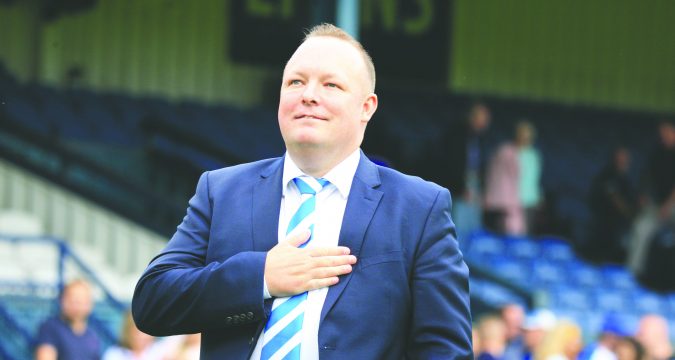
It’s in times like these when some will say there are more important things than sport, more important businesses than the club you grew up supporting.
And they are right, of course. People’s health and safety must take priority in what are unprecedented times for everybody, and there are jobs more vital to day-to-day life than those involved in a professional sporting club.
But the power and importance of sport should not be underestimated.
When the country eventually gets through the coronavirus crisis, people will need their morale to be boosted activities and Rugby League, which remains deeply embedded in the local communities it represents, will have a key role.
Jamie Peacock wrote in a newspaper column last week about how we could see a surge in the public attending live sporting events once they are permitted again, and it would be nice to see some bumper crowds around the grounds when that happens.
But nobody yet knows when that will be.
Hopefully Rugby League is robust enough to survive whatever lies ahead, but it undoubtedly has challenges in front of it.
We all started our connection with the sport by following one team, and it’s at times when their existence is potentially under threat that their importance can become more prominent.
For my own boyhood club Rochdale Hornets, that has already played out in recent months, with its supporter-owned model reaching a natural conclusion and the club being taken over by new owners.
That takeover has not yet been formally completed, but it’s a measure of incoming Chairman Andy Mazey (pictured) and his fellow directors that they have again stepped up to the plate since the coronavirus pandemic took hold.
As with other clubs, they have provided clear and regular updates for supporters, the latest of which included the fact that chief executive Steve Kerr and coach Matt Calland have both taken temporary pay cuts, which is an admirable stance in the current climate.
The board emailed all players and staff at their weekend to further emphasise their commitment, stressing a need for the club to remain united.
Similar instances will doubtless have unfolded at other clubs, where their current custodians feel the responsibility of keeping teams afloat in an extremely testing and uncertain period.
As soon as news broke that the game would be suspended until April 3 – a date that seems certain to be a marker post for review rather than a possible restart – there were fears for the sport’s very existence.
They were not without foundation.
Many clubs can live hand-to-mouth in the good times, so a sudden and complete change in circumstance would naturally put the metaphorical cat among the pigeons at most if not all organisations.
That applies at all levels of the sport. Although Super League clubs employ many more full-time staff than the majority of their Championship and League One counterparts, as officials rightly pointed out last week, every single one has their own liabilities and limited income streams.
In the Championship and League 1 that can include office staff, coaching and backroom personnel, contracted players with guaranteed money, stadium rental, insurance and other liabilities such as creditors and loans.
The Government’s move to assure a certain percentage of wages for employees has eased a few fears at this level, but it far from guarantees every club’s future.
So it will come down to the best organised and innovative clubs to emerge from the period of inactivity. See York staging a virtual match against Featherstone on Sunday and selling virtual pints and pies for one unusual way to generate extra income.
For his part, Mazey maintains a confidence in his organisation that could act as a blueprint for others.
“It’s damage limitation in many respects but we’re confident that if it’s 12 weeks without rugby that we can ride it out as a club and emerge as one of the stronger ones because of the measures we’ve put in place this week,” he explained.
“We’ve acted responsibly and there have been some difficult calls to make, but at the moment there’s been no impact or changes to player agreements.”
These are worrying times for everybody in the sport, but with strong leaders in place, that prospect of returning to matches in front of swollen crowds at some point this summer may yet become a reality.
